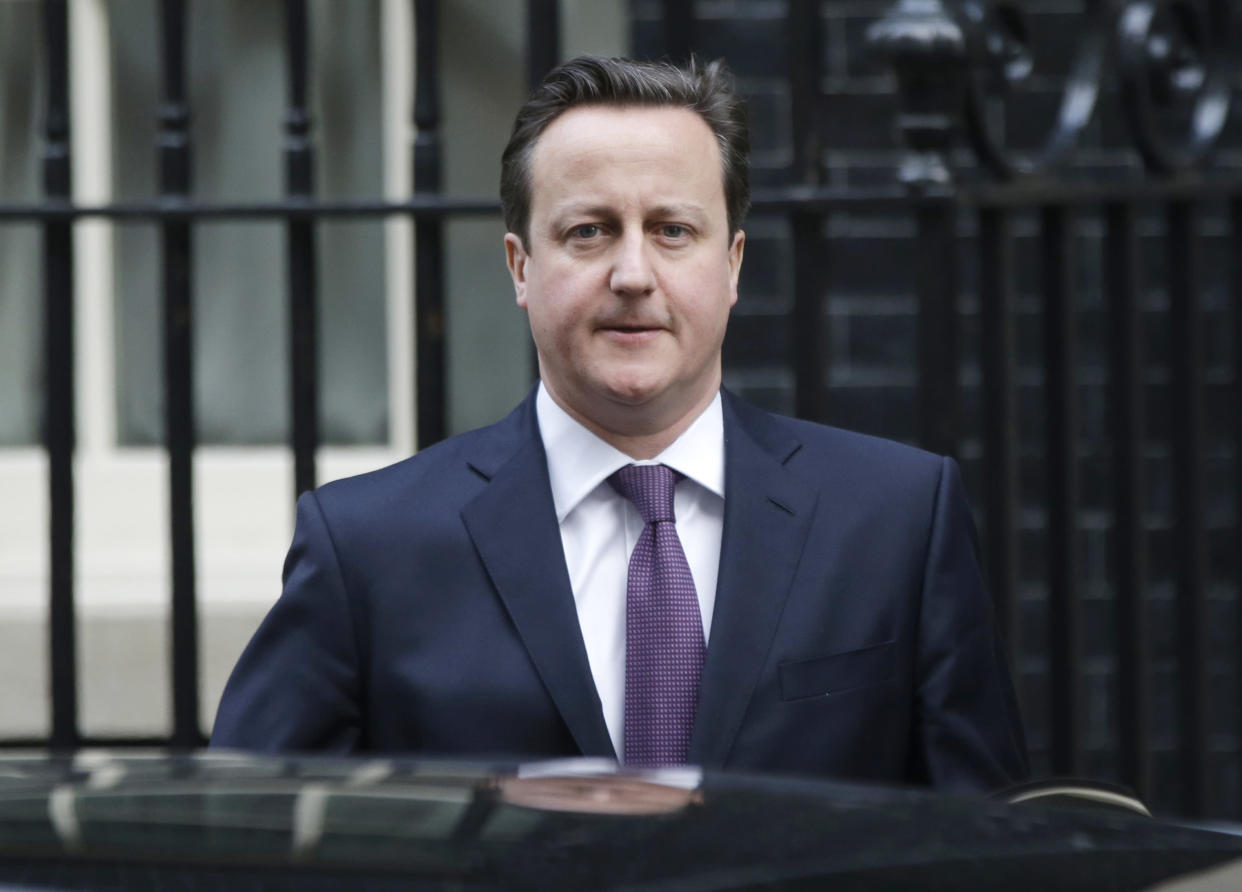Cameron delays Europe speech amid Algeria crisis
British prime minister postpones key Europe speech because of Algeria hostage crisis

Britain's Prime Minister David Cameron leaves his official residence at 10 Downing Street in central London, on his way to the Houses of Parliament to address lawmakers, Wednesday, Jan. 16, 2013. (AP Photo/Lefteris Pitarakis)
LONDON (AP) -- Prime Minister David Cameron is postponing a key speech about Britain and the EU because of the hostage crisis in Algeria, officials said Thursday.
The long-awaited address, scheduled for Friday in the Netherlands, was expected to outline how Cameron thinks Britain's relationship with the EU should change — a move that many fear could backfire and leave Britain increasingly isolated in Europe.
Cameron was expected to offer insights into how he proposes to renegotiate Britain's relationship with the EU, and whether that bartering will result in the country's ultimate exit from the bloc.
But the leader was sidetracked by a bloody hostage situation at a natural gas plant in the Sahara Desert. Algerian forces launched a military assault on Thursday to try to free dozens of foreign hostages — including an unknown number of Britons — held by Islamist militants. Algerian state television said that two Britons were among foreigners killed in the clash.
"We should be prepared for the possibility of further bad news," Cameron said. The leader will stay in London to handle the crisis, Downing Street said. No date was given for when the Europe speech may be delivered.
Regardless of when an address will materialize, the prospect that it will signal Cameron's stance on Brussels has stirred vigorous political debate about Britain's future membership in the EU.
The country's relationship with the European Union has been fraught since the creation of the bloc. Several Conservative leaders before Cameron, including Margaret Thatcher and John Major, have all tried to carve out more sovereignty for Britain inside the EU.
Many viewed Cameron's speech as an attempt to shore up support from euroskeptics in the leader's Conservative Party. But with the EU largely focused on stemming its debt crisis, playing to internal politics could backfire and anger nations like Germany, which has taken a lead in untangling Europe's economic woes.
"The U.K. at the moment is marginalizing itself in the European debate," said Fabian Zuleeg, chief economist at the Brussels-based European Policy Center think tank. "The debate is very Britain centric, there is very little consideration of what other countries might think about this."
A chorus of international voices from Brussels to Berlin has been quick to stress the importance of Britain's presence in the EU and offer thinly veiled warnings about potential consequences.
Even the U.S., which normally stays out of disputes among EU states, has made its views clear.
In a phone call with Cameron ahead of the planned speech Thursday, the White House said President Barack Obama "underscored our close alliance with the United Kingdom and said that the United States values a strong UK in a strong European Union, which makes critical contributions to peace, prosperity, and security in Europe and around the world."
While many had expected Cameron to announce a possible referendum on Britain's future in the EU, the prime minister has offered few specifics on what he was planning to address in his speech.
That vagueness coupled with a long run-up to the speech could hurt Cameron's future, according to EU expert Iain Begg, a professor at the London School of Economics.
"He's talked himself into a trap," Begg said. "By signaling this speech for several months, euroskeptics are anticipating specifics. At the same time, he has to appear reasonable to his European partners and therefore say nothing."
___
Associated Press writers Danica Kirka in London, Raf Casert in Brussels and Frank Jordans in Berlin contributed to this report.

